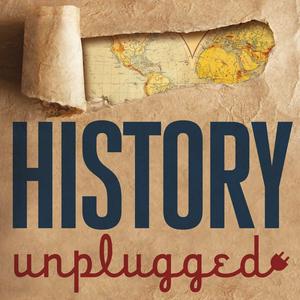The Battle of Agincourt, 1415: Longbowmen, Bands of Brothers, and Henry V’s Triumph
From Shakespeare's 'band of brothers' speech to its appearances in numerous films, Agincourt rightfully has a place among a handful of conflicts whose names are immediately recognized around the world. The Battle of Agincourt, fought in 1415, is famous for the decisive role of the English and Welsh longbowmen, who—despite being significantly outnumbered and exhausted—decimated the heavily armored French nobility with volleys of arrows. This unlikely victory was profoundly important because it not only paved the way for King Henry V to be named heir to the French throne via the Treaty of Troyes, but it also demonstrated the waning dominance of the medieval knight in warfare.Today’s guest is Michael Livingston, author of “Agincourt: Battle of the Scarred King.” We go back to the original sources, including the French battle plan that still survives today, to give a new interpretation, one that challenges the traditional site of the battlefield itself. The English victory at Agincourt on October 25, 1415, was a result of strategic brilliance, terrain advantage, and the devastating effectiveness of the longbow, combined with French tactical errors. Henry V’s smaller army, roughly 6,000-9,000 men (mostly longbowmen), faced a French force of 12,000-36,000, including heavily armored knights.See omnystudio.com/listener for privacy information.


